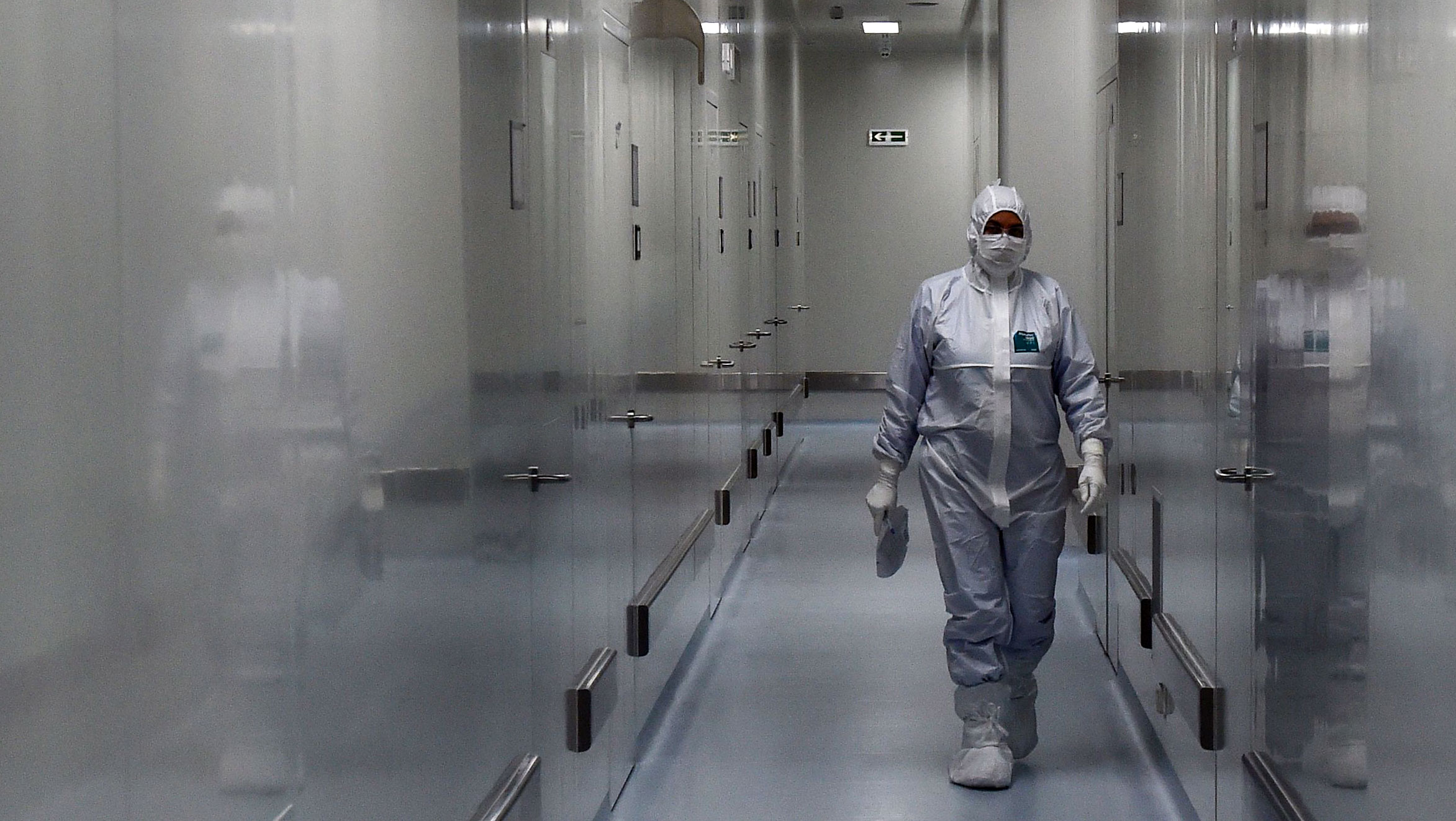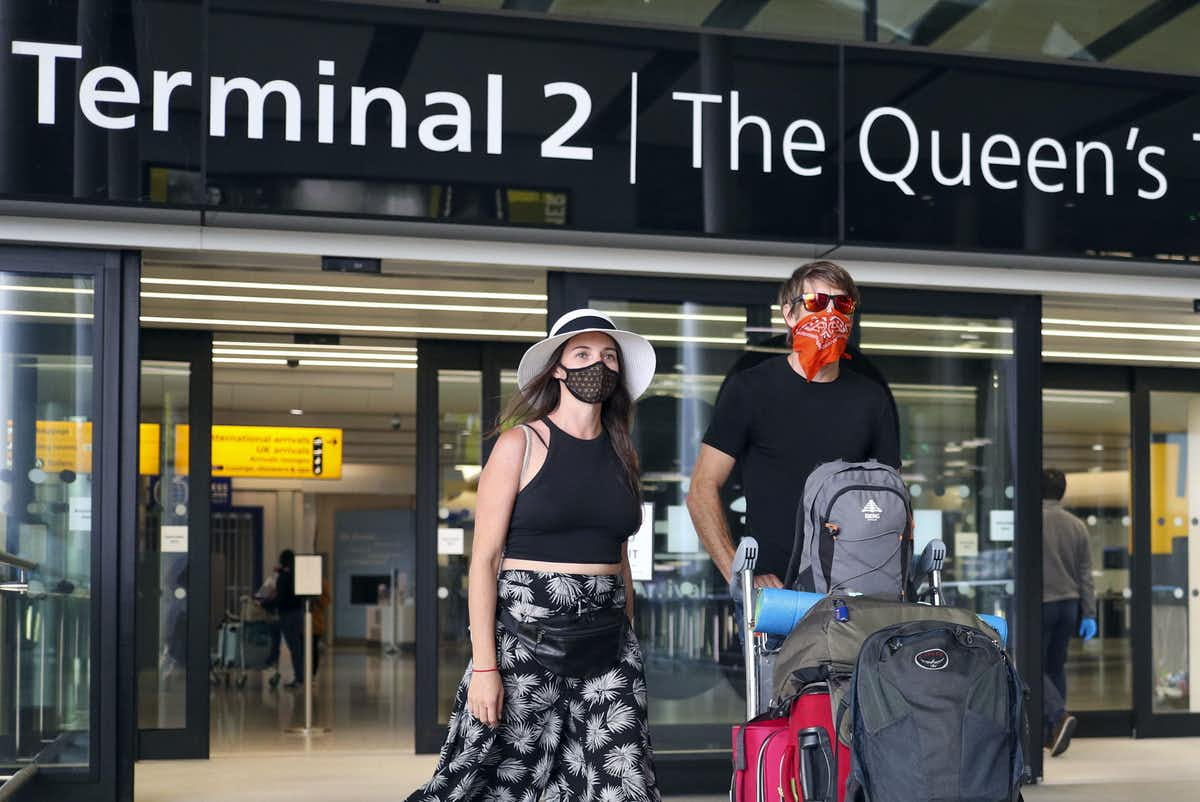Debate: can big countries eliminate coronavirus without a vaccine?
Four experts on whether immunity without a vaccine is a realistic goal

A free daily email with the biggest news stories of the day – and the best features from TheWeek.com
You are now subscribed
Your newsletter sign-up was successful
Angharad Davies, Swansea University; Andrew Lee, University of Sheffield; Jimmy Whitworth, London School of Hygiene & Tropical Medicine; Lakshmi Manoharan, University of Oxford
The UK should change its Covid-19 strategy to try to eliminate Covid-19 even without a vaccine rather than simply managing the disease, according to Independent SAGE, a group of scientists set up as an alternative to the government’s advisory body.
New Zealand has effectively managed to eliminate the virus, but can states with much larger, denser populations that have experienced much bigger outbreaks hope to do the same? Or is it more realistic to accept that the disease is likely to continue to circulate at some level and plan for that? We asked four experts for their views.
The Week
Escape your echo chamber. Get the facts behind the news, plus analysis from multiple perspectives.

Sign up for The Week's Free Newsletters
From our morning news briefing to a weekly Good News Newsletter, get the best of The Week delivered directly to your inbox.
From our morning news briefing to a weekly Good News Newsletter, get the best of The Week delivered directly to your inbox.
Angharad Davies, clinical associate professor in microbiology at Swansea University
Elimination or near-elimination in the UK would require ambition and huge effort, organisation and resource but I believe it is possible.
The effort would mean accepting fewer freedoms in the medium term. Crucially, it would rely on trust in authority and willingness to comply with restrictions. The incentive would be that, if we achieved elimination, we could go back to a state closer to normal, and a healthier local economy even without a vaccine.
The effort would have to be sustained until then, and if no effective vaccine transpires – which is possible – then the question is how long this approach could justifiably continue in the face of a virus endemic globally.
A free daily email with the biggest news stories of the day – and the best features from TheWeek.com
Lakshmi Manoharan, medical epidemiologist at the University of Oxford
Suppressing the virus to a low level before allowing economic and social activity to resume as normal is important. Doing otherwise will risk the possibility of the UK having to go in and out of lockdown numerous times. That would be more harmful for society and the economy, compared to implementing more stringent measures in the short term.
Recent studies have shown that the number of people with Covid-19 antibodies in coronavirus hotspots such as Wuhan and Spain is still low. This means that despite high numbers of cases and extensive community transmission, the majority of the population is still susceptible to the virus. Allowing economic and social life to resume while this is the case and in the absence of a vaccine may lead to a larger second wave of infection.
The emphasis should be on strong measures such as border quarantines and a robust test, trace and isolate system to reduce infection rates before relaxing economic measures, opening schools and allowing “air bridges”. We need to focus on reducing the amount of community transmission first, which allows for spread of infection into our most vulnerable populations.
Jimmy Whitworth, professor of international public health at the London School of Hygiene and Tropical Medicine
We need a sense of proportion in countries that have reduced the total mortality rate to normal levels, as the UK has now done, showing that the first peak of the epidemic has passed. Once the number of new cases is under good control (one new case a day for every million of population is reasonable) we can allow social and economic life to resume. We can also shift more attention to general physical and mental health.
We need to continue to maintain some physical distancing measures, combined with effective testing and contract tracing to prevent the inevitable clusters expanding into a second wave. But to try to eliminate all cases, and to sustain a zero-Covid state, would take enormous resources. This would produce diminishing returns as the number of cases goes down – and other aspects of life would suffer.
We have seen this with countries attempting polio elimination, where routine health services may suffer, and with malaria elimination where the cost of averting each case rapidly increases as the number of cases goes down.
Getting the number of cases down to manageable levels might eventually lead to zero cases temporarily, but we do not currently have effective measures to keep it at zero. In particular, border quarantines are not likely to be effective unless rigorously and universally applied with consequent disruption of all business travel, tourism and international trade.

Border quarantine won’t be effective unless it is universal. Nick Ansell/PA Wire/PA Images
Andrew Lee, reader in global public health at the University of Sheffield
Elimination of Covid-19 in high-income countries is both possible and realistic. Ebola elimination was achieved in parts of Africa through disease control measures rather than a vaccine, including disease surveillance, infection control, changing social norms (for example around physical contact) and public communications.
This demonstrates elimination is possible even in low and middle-income countries with fewer resources. The key determinants, as with all infectious disease control programmes, are the political and societal will to achieve this. Because it requires a multi-pronged approach, it needs resourcing, leadership and commitment to deliver. So the question becomes: “What are we prepared to pay or sacrifice to achieve this?”
But in our interconnected globalised world it is not enough to eliminate the virus in just a few countries. Countries where the disease is endemic act as reservoirs of infection and can reinfect others. This is a global health threat that requires global leadership and coordinated action if we are to eliminate it.
Angharad Davies, clinical associate professor at the Swansea University; Andrew Lee, reader in global public health at the University of Sheffield; Jimmy Whitworth, professor of international public health at the London School of Hygiene & Tropical Medicine; Lakshmi Manoharan, medical epidemiologist at the University of Oxford
This article is republished from The Conversation under a Creative Commons license. Read the original article.